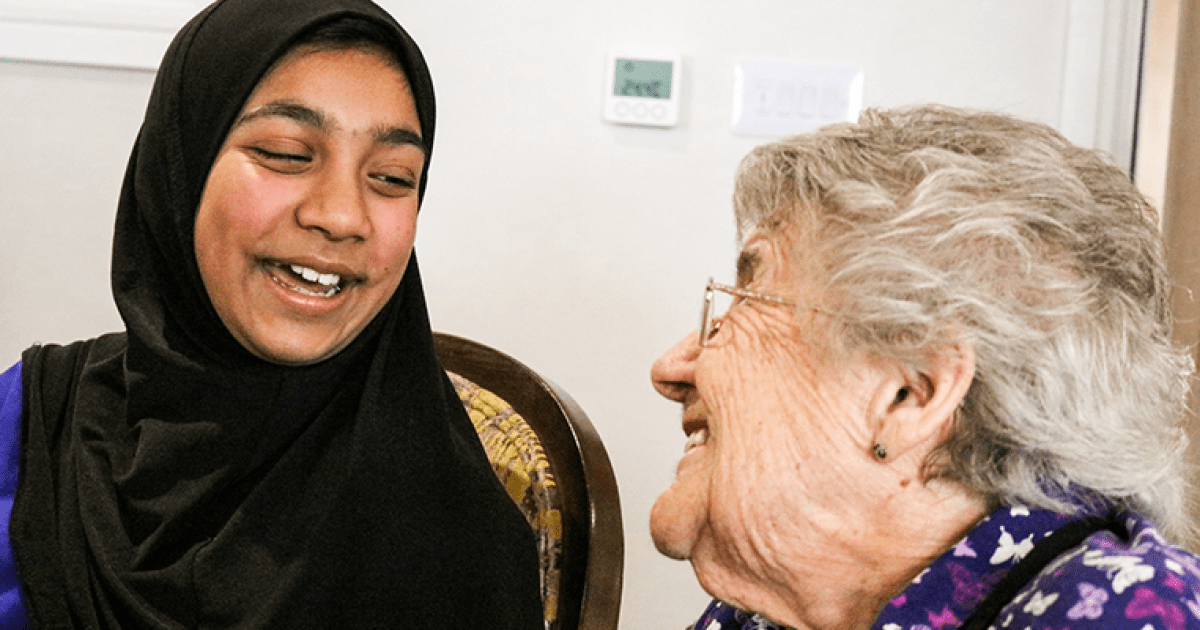‘A generational crisis’: new report unveils UK is more age segregated than ever before

The UK is more age segregated than ever before, with a divide between generations leading to loneliness, poor mental health amongst communities and increased social fragmentation, according to a new report supported by research from Manchester Met.
The report, A Divided Kingdom, was led by Intergenerational England (IE) and highlights shocking statistics that paint a clear, but bleak, picture of how generationally divided the UK is.
Only 5.5% of children in the UK live near someone aged 65 or older, while less than one in 10 care home residents (7%) report regular interaction with anyone under the age of 30.
The report calls for NHS leaders, educators, housing providers and community organisations to review its findings and its blueprint for change, having outlined a set of five ambitious but achievable recommendations for the future.
Research suggests there is an appetite for progression to be made, with a recent YouGov survey commissioned by IE revealing one in eight believe stronger connections between generations could significantly reduce loneliness and improve mental health outcomes.
The new report is a culmination of work from a multidisciplinary consortium of independent researchers and industry professionals, with involvement from academics at Manchester Met, including Dr Amy Harwood – Reader in Clinical Exercise Physiology.
Dr Harwood, who is also Deputy Research Lead & Theme Lead for Health, Wellbeing and Communities at the University’s Institute of Sport, said: “Our research demonstrates the transformative impact of intergenerational and cross-sector initiatives in improving access to exercise rehabilitation for people with long-term conditions, particularly in socioeconomically deprived communities.
“We’re deeply committed to advancing our knowledge in this field and have a shared goal with Intergenerational England to develop strategies that can significantly improve the current reality. We’re pleased to announce that Emily Abbott, Programme Director at Intergenerational Music Making and Co-Founder and Co-CEO of Intergenerational England, has been awarded a Chancellor’s Visiting Fellowship here at Manchester Met, to support this combined vision.”
Over the next 12 months, Emily will collaborate with the Institute of Sport to co-create a place-based Intergenerational Health Framework for Greater Manchester.
This work will draw on the power of sport, movement, and social connection to address health inequalities and improve population wellbeing – particularly in the context of the NHS 10-Year Plan and the government’s wider preventative health agenda.
Emily said: “This Fellowship is about more than a single project – it’s about building a national blueprint for change.
“We need to embed intergenerational practice into the very DNA of how we think about health, connection, and care in the UK. This is our opportunity to show what’s possible when we work across generations, systems, and communities.”
Intergenerational England is a national not-for-profit organisation dedicated to advancing intergenerational practice through advocacy, research, and systemic change.
It champions intergenerational development as a structural solution to some of the UK’s most deep-rooted challenges, working across sectors – from councils and NHS trusts to Parliament, housing associations, and grassroots networks – to deliver social progress.




